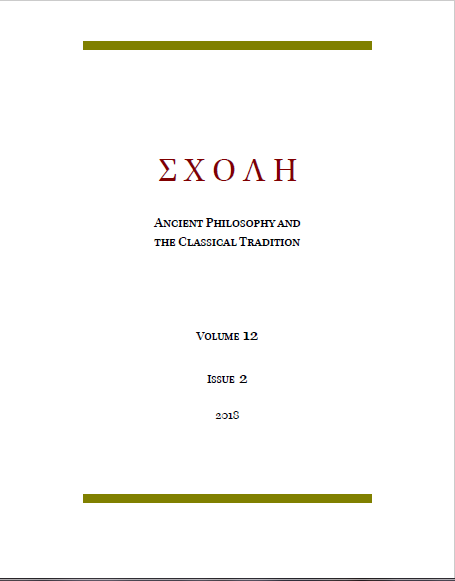О ФИЛОСОФИИ ЯЗЫКА ПОРФИРИЯ И ЯМВЛИХА
ON THE LANGUAGE PHILOSOPHY IN THE WRITINGS OF PORPHYRY AND IAMBLICHUS
Author(s): Dmitry Kurdybaylo, Inga KurdybayloSubject(s): Theoretical Linguistics, Historical Linguistics, Ancient Philosphy, Philosophy of Language
Published by: Новосибирский государственный университет
Keywords: Porphyry; Letter to Anebo; Iamblichus; On mysteries; Plato; Cratylus; philosophy of language; logos; mysticism; theurgy; ancient philosophy; history of linguistics;
Summary/Abstract: Porphyry’s “Letter to Anebo” and Iamblichus’ “On mysteries” provide a comprehensive list of problems that form a borderline between their approaches to theurgy, to relations between gods and a human soul and to the soul’s ascent to the intelligible realm. Linguistic subjects comprise a noticeable part of that list of problems, because at least verbal invocations with strange or incomprehensible words and phrases were one of the most distinct attributes of theurgy. For Porphyry speech is an attribute of lower ontological levels, while gods stay in silence and do not use words. Consequently, the soul’s ascent to gods is followed by rejection of all linguistic phenomena. For Iamblichus the highest ontological level is attributed by silence in the same way, but the ascent of soul can be performed with the help of words and sounds, even and especially if they are “senseless” or incomprehensible. Porphyry accents on rational level of language, claims the possibility of expressing any thought in any language, adheres to conventional theory of names origin in the Aristotelian sense and relates the “correctness of names” to coherence of relations between names to relations between things.
Journal: ΣΧΟΛΗ. Философское антиковедение и классическая традиция
- Issue Year: XII/2018
- Issue No: 2
- Page Range: 480-498
- Page Count: 19
- Language: Russian

